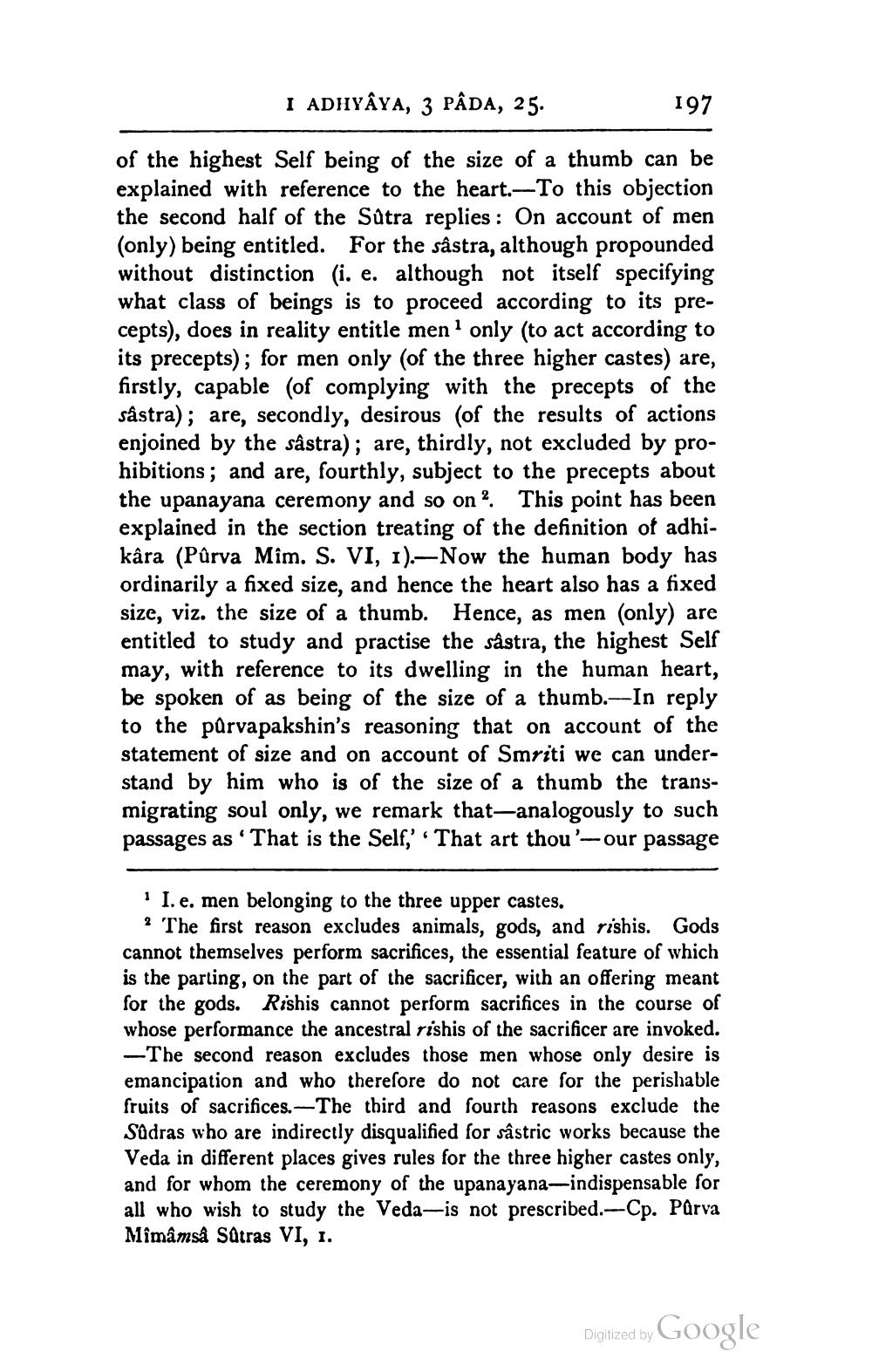________________
I ADHYÂYA, 3 PÂDA, 25.
197
of the highest Self being of the size of a thumb can be explained with reference to the heart.—To this objection the second half of the Sutra replies: On account of men (only) being entitled. For the sâstra, although propounded without distinction (i. e. although not itself specifying what class of beings is to proceed according to its precepts), does in reality entitle men only (to act according to its precepts); for men only (of the three higher castes) are, firstly, capable of complying with the precepts of the sâstra); are, secondly, desirous (of the results of actions enjoined by the sâstra); are, thirdly, not excluded by prohibitions; and are, fourthly, subject to the precepts about the upanayana ceremony and so on. This point has been explained in the section treating of the definition of adhikâra (Pûrva Mim. S. VI, 1).-Now the human body has ordinarily a fixed size, and hence the heart also has a fixed size, viz. the size of a thumb. Hence, as men (only) are entitled to study and practise the sâstra, the highest Self may, with reference to its dwelling in the human heart, be spoken of as being of the size of a thumb.-In reply to the pūrvapakshin's reasoning that on account of the statement of size and on account of Smriti we can understand by him who is of the size of a thumb the transmigrating soul only, we remark that-analogously to such passages as 'That is the Self,' That art thou'-our passage
* I.e. men belonging to the three upper castes.
. The first reason excludes animals, gods, and rishis. Gods cannot themselves perform sacrifices, the essential feature of which is the parting, on the part of the sacrificer, with an offering meant for the gods. Rishis cannot perform sacrifices in the course of whose performance the ancestral rishis of the sacrificer are invoked.
-The second reason excludes those men whose only desire is emancipation and who therefore do not care for the perishable fruits of sacrifices. The third and fourth reasons exclude the Sūdras who are indirectly disqualified for sâstric works because the Veda in different places gives rules for the three higher castes only, and for whom the ceremony of the upanayana-indispensable for all who wish to study the Veda-is not prescribed.--Cp. Pārva Mimâmså Sätras VI, 1.
Digitized by
Digized by Google




